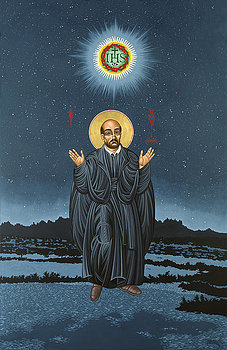 Every now and again it is good to pay attention to the little things that make us smile. One such thing has come to me from a rather odd place: a TV commercial. It is an animated ad for a supermarket chain which depicts a round, hairy-chested, workout-clothed guy sporting a long pony tail, but is balding more than a little. He never stops exercising while simultaneously drinking a green smoothie as the song “I’m Too Sexy” * is heard in the background. The little guy runs out of his smoothie, discovers an empty fridge, and thus drives to said supermarket, exercising to the beat the entire time. The ad ends with him making a new smoothie, still to the beat, with a facial expression that confirms that he does indeed think he is pretty sexy. This clever commercial, 30 seconds of lighthearted fun, never fails to make me smile. And it has helped me to realize that now more than ever it is important to find the simple things which bring joy, or at least a smile, and be grateful for them even if they are a bit silly. It is a reminder that it is good to pay a bit more attention to the seemingly insignificant things which we either take for granted or simply have forgotten how to see. This is not suggesting a denial of life’s realities, but rather that we need to stay balanced if we are to remain emotionally and spiritually healthy. To see and savor tiny moments is important. In fact, it is often in the little things that the greatest miracles are found.  To find joy in little things is related to the greater spiritual gift of wonder and awe. We receive this grace at Confirmation, but sometimes we under-utilize it because we forget it is there. Given that we specifically receive the gift of wonder and awe along with knowledge, wisdom, piety, counsel, fortitude, and understanding, it is therefore of equal importance with them. Some may say that we entertain easily if we go out to a river and see a shore full of rocks and find them fascinating. I do not believe that is the case; rather, we are utilizing the gift of wonder and awe. But if we can spend time gazing at a sunset, searching the sky for a rare comet or a meteor shower, enjoying gentle surf, or spending time in a peaceful garden, we can engage the gift of wonder and awe which can move us to glorify and praise their Creator. We can learn to savor these moments, and well we should, since our lives can be so busy that we become jaded to them. And if we can find wonder and awe in things, imagine how much we can find in experiencing other people if we let this gift take root.  St. Ignatius of Loyola (1491-1556, feast day July 31) is one who learned to see with such clarity that he was often filled with ecstatic joy, a result of the gift of wonder and awe. Although he did not describe the experience in detail, on the banks of the River Cardoner where he nearly ended his own life in despair, Ignatius noticed joy. That is, he was invited by the Holy Spirit to embrace life and to let go of his sinful past which at that point overwhelmed him completely. He had been forgiven, but had been unable to accept it until he let the grace of God become all he needed to proceed into his future. Once he realized that we are all loved sinners and that God will give us the graces we need when we ask, he was able to start seeing and savoring that which gave him joy. Ignatius learned to recognize God’s presence in others and to see the giftedness within them that perhaps they themselves had not yet seen. It was this ability, (part of the gift of discernment, but also his unique gift) that enabled Ignatius to attract and then instruct men who shared his vision for mission and ministry.  What convinces me most about the wonder and awe-filled heart of St. Ignatius is the Suscipe prayer which is found at the end of his Spiritual Exercises. Only someone with a heart moved profoundly by the Holy Spirit, who lets Love lead, could have composed the prayer which ends: “Give me your love and your grace. That is enough for me.” ** The entire movement of the Spiritual Exercises is meant to help the retreatant to arrive at this point; that is, to help them to embrace the joy of knowing that our purpose is to know, love, and serve the Lord in whatever way we are called. No matter what our personal expression of the call might be and no matter how much struggle we encounter along the way, if we give everything over to the Lord and trust in His love and His grace, we will begin to see joy in little things that others may see as ridiculous or insignificant. Let us savor that which brings wonder and awe, even the silly things, and let grace and our love of the Lord be the power behind our ‘evangelization by example.’ And because God is in those moments, they are indeed miraculous.  May we ask the Holy Spirit to help us with the gift of wonder and awe so that we may see and savor the little things which bring us joy! May we bring joy to others, letting them experience wonder and awe at the gift we offer them, and in doing so make their burden a bit lighter! And may we ask the intercession of St. Ignatius of Loyola to help us attain the graces we need that we might be able to say “your grace and your love are enough for me” for the greater glory of God! Let us continue to meet in the heart of Jesus! Peace! ©Michele L. Catanese * I’m Too Sexy was written and performed in 1991 by Right Said Fred, a rock group from the UK. It eventually made its way to the US and was on the radio for a while before fading away. The song was originally meant to be a satire of those who walk the catwalk or who are body builders who think too highly of themselves. ** Full text of the Suscipe prayer: “Take, Lord, and receive all my liberty, my memory, my understanding, and my entire will, all that I have and possess. You have given all to me. To you, Lord, I return it. All is yours. Dispose of it wholly according to your will. Give me your love and your grace. That is enough for me.” Images: 1.My photo, a playful marmot on Copper Mountain in Colorado: this little critter seemed a bit whimsical, and also a bit full of himself, so it seemed a fitting photo here. 2. My photo, rocks at a lake near Copper Mt., Colorado: I truly did find these rocks captivating. 3. Icon, St. Ignatius in Prayer Beneath the Stars by Fr. William Hart McNichols. If you look carefully, St. Ignatius' feet are not on the ground. He is seen in ecstatic prayer, joyful in the Holy Spirit. You can obtain a copy at https://fineartamerica.com/featured/st-ignatius-in-prayer-beneath-the-stars-137-william-hart-mcnichols.html 4. My photo, sunset in Mayaguez, Puerto Rico: If you look closely there is a man kneeling on the beach. Perhaps he is in prayer, filled with wonder and awe. 5. My photo, a bobblehead I keep on my desk of St. Ignatius, (Iggy): While this may seem strange to end with, the statue is whimsical and makes me smile: I think Ignatius would approve. - A particular shout out to a Jesuit friend in Denver and to my two Jesuit friends in Puerto Rico, and also to all my friends in the Society of Jesus! To the Jesuits, Happy Feast Day! NOTE: In compliance with GDPR rules, I wish to make it clear that I do not gather any information on any of my readers at any time.  While recently reading a book about St. Catherine of Siena, (1347-1380), I was struck by the practicality of some of her insights. In reference to our relationship with God she said, “Open the door to your heart, for it is really rude to let God stand at the door of your soul without opening to Him.” Leaving anyone standing at a closed door is rather discourteous, especially when it is God! St. Catherine is indicating that when we deny God entrance, we cannot grow in relationship with Him; but she is further implying that to keep Him outside is a sin against ourselves because we are also refusing His mercy and the opportunity to let ourselves be healed. The truth is that none of us deserve forgiveness, but in His great love and mercy God offers it anyhow. The whole of our faith revolves upon this reality: we are all loved sinners for whom Jesus the Lord died and rose in order to offer us something we could never deserve or earn. He simply offers the gift because He is mercy and He is Love. And in this, He wants us to learn to offer the same love and mercy to others for the good of everyone in our communities, churches, and world. In other words, it is how we evangelize and thus contribute to building the Kingdom.  A stumbling block to forgiveness is that sometimes we think forgiving means forgetting. To try to forgive is good, but to try to forget is to do ourselves violence. Besides, it is almost impossible to do anyway. In fact, if we were to forget we would learn nothing from the experience. Forgiveness is a process in which we must honestly access what the offense against us has been, the state of our relationship with the other, and what it will take for healing to occur. To forgive means we have to risk setting the other person free whether we think they deserve it or not. It means we offer the mercy and let God offer the judgment. And let us be clear, judgment and justice is not the same thing, though one flows from the other. Judgment is about deciding who deserves what, and only God can accurately do that, though He offers us the ability to discern and make informed decisions based on grace, common sense, and His teaching. Justice is what is done to atone, the action taken to right a wrong, to learn from an event or situation, and finally to heal. Offering mercy does not mean that we eliminate justice; remember, justice without mercy is cruelty and mercy without justice becomes an ‘anything goes’ mentality in which chaos will reign. Justice must be based on love so that we can move forward together. Without love and mercy, (which indicate that we have indeed forgiven), justice cannot take place.  In the gospels Jesus healed and forgave many people, but the healing of the paralytic stands out. (Matthew 9:1-8) When Jesus approached the paralytic, He first told him that his sins were forgiven, and then later He stated that the man was healed of his bodily infirmity. Only after Jesus indicated that healing the man’s soul was more important than healing the body, was the man able to get up and walk. Newly healed, the man could now do what was needed: picking up his mat, he got to work. This shows that God’s justice and mercy were affecting change within this man. Jesus offered him healing, but the man needed to get up and work at building a better life. That is, he needed to go out and offer to others the same mercy he had received.  It is important to truly desire to forgive, but if we are honest, we need to beg for the grace so that we can mean it with sincerity. That is, we need to allow ourselves time to grieve the pain and hurt, and with the help of grace, to let go of what holds the other and ourselves bound. We must acknowledge that we are all sinners, and then be sorry for our part in sin. Only when we have humility can we begin to see that the other is as weak and prone to sin as we are. As long as we think we are somehow better than the other, forgiveness (true mercy and justice) is not really possible. We have to own that we are just as capable of the sin as the other had been. In other words, we cannot forget redemption. If we keep people stuck in their past mistakes by judging them based on it, we will never reconcile. And if we fail to forgive, we relegate everyone to the status of Judas, forgetting that even he was offered redemption. The problem for him was that he refused it, unlike Peter, whose sin was also a betrayal, but who did accept redemption because he allowed himself to be humbled, to trust in the promise of Jesus’ mercy, and committed himself to work for God’s people, that is, to build the Kingdom of God where true Justice and Mercy reign. So let us continue to work on our own issues of sinfulness and to reach out to others so that we can let true justice, equality, mercy, and love grow in our communities, churches, and world. Let us not be rude to God: let us open the door to our hearts and let Him in.  May we ask for the intercession of St. Catherine that we might learn to recognize the Lord standing at the door of our heart so we can open it! May we accept the gift of humility that we may offer mercy to others and work toward justice together! And may we ask for the graces needed to forgive those who have wronged us so we can move forward in love! Let us meet in the Heart of Jesus! Peace! ©Michele L. Catanese Note: God’s justice and mercy have always been consistent. If we read the passages in the Old Testament in which God was angry with His people due to their massive sins, He always rescued them when they cried out in true sorrow, having learned a lesson. But then there was always atonement; they did not simply walk away, but had to work through the consequences of what they had done. That is, justice was meted out. The atonement was not a payback demanded by God; rather, the consequences of their sin helped them to learn from their mistakes. In the end, the atonement brought healing and freedom through the knowledge they gained along the way….until the next generation came along and the process began all over again. Images: 1. Icon, St. Catherine of Siena - Guardian of the Papacy, by Fr. William Hart McNichols. You can obtain a copy of this icon at https://fineartamerica.com/featured/st-catherine-of-siena-guardian-of-the-papacy-288-william-hart-mcnichols.html 2. My photo, a river on the North Island in New Zealand. This symbolically captures the flowing of justice and mercy as coming from the same source, God. 3. Painting, Peasants by Diego Rivera. 4 Painting, The Good Samaritan, Vincent van Gogh. 5. Icon, El Buen Pastor, by Fr. William Hart McNichols. You can obtain a copy of this icon at https://fineartamerica.com/featured/el-buen-pastor-188-william-hart-mcnichols.html NOTE: In compliance with GDPR rules, I wish to make it clear that I do not gather any information on any of my readers at any time. |
Heart Speaks to Heart
|

 RSS Feed
RSS Feed

